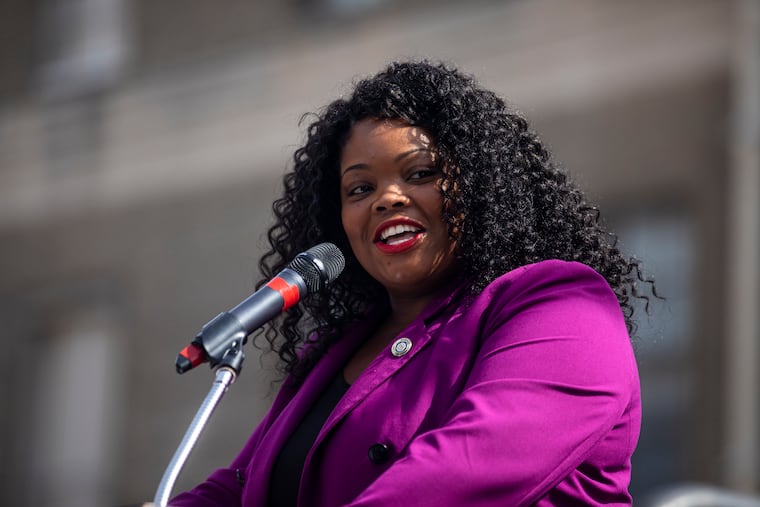Curfew won’t be a cure-all. But it beats doing nothing.
Philly residents have suffered enough. Something has to be done. Making the 10 p.m. teen curfew permanent is a small step that might not make a difference. But doing nothing would be worse.

Unruly kids hanging out on street corners and outside local bodegas late at night are ubiquitous in many neighborhoods.
So, yes, I like the idea of making last summer’s 10 p.m. teen curfew a permanent thing, even if numerous studies show that curfews are largely ineffective at deterring criminal activity. Philly is in crisis. A message needs to be sent that it’s no longer business as usual.
I wish it made sense for the city to bring in the National Guard to protect our most troubled neighborhoods, as some activists have proposed. But since that’s not happening, the least we can do is to try and keep children under 17 off the streets.
Granted, the reasons so many kids tend to be out late at night past curfew are multifaceted. Many households in the city’s poorest neighborhoods are headed by single parents who may be busy working multiple jobs and caring for other children. As a society, we need to do more to support these households.
“We don’t give the families and the caregivers the support they need to deal with their children,” Sister Taleah Taylor, president of the City of Dreams Coalition, told me earlier this week. “A lot of these kids don’t even want to be out there, but they’re forced to because they’re hungry. There’s a rapid [increase in] men and women selling food stamps ... People who have never experienced it can’t fathom it.”
» READ MORE: Philly teens now have a 10 p.m. curfew for the summer. Here’s how it works.
But that didn’t stop City Council last week from voting to make the 10 p.m. curfew for teens permanent. The move could wind up being largely symbolic if it’s not strictly enforced. As South Philly activist Anton Moore told me recently, “You’re dealing with a parenting problem. Nothing’s going to change until parents step up and regulate their children.”
The proposal now awaits Mayor Jim Kenney’s signature.
My support for curfews is somewhat equivocal because some elements of the program need to be ironed out. For instance, law enforcement types are bristling at the prospect of needing to manage teens who break curfew. I don’t blame them. Cops have far better things to do than chase wayward children.
“This is a typical progressive City Council move,” said David Fisher, a 29-year veteran of the Philadelphia Police Department and president of the National Black Police Association. “Are they not living in the same city we’re living in?”
If police officers find a teen out past curfew, they are first supposed to take the teen home — provided the youngster even gives a correct address. A backup is to take them to a police district or to one of the new community evening resource centers.
“You tell me: What 17-year-old is just going to get in the back of a police car?” Fisher told me. “How are the relationships with police going to get better when you’re making them take 16- and 17-year-olds off of the street who don’t want to go?”
We don’t need to make cops’ job tougher than it already is. They need to be acting as a deterrent to crime and locking up shooters — not driving home children caught out past curfew.
There are other factors to consider, said Ricky Duncan, chief executive of NOMO, which stands for New Options, More Opportunities. “What are the repercussions behind the violations to the curfew?” Imposing a curfew could be just “another way to profile the young people,” he told me. “What about the kid who has nowhere to go?”
As a program leader, Duncan also wonders what might happen if he brings home youngsters from skating or other trips after 10 p.m. “Would I be at fault for putting these kids in violation of curfew?” He’s right: We also have to ensure that kids who are out past curfew for legitimate reasons — they are coming home from work or doing errands to support their households, for instance — aren’t hassled by law enforcement.
The city tried a temporary curfew last summer, starting in July. If it had begun earlier, it might have prevented a group of teenagers from fatally beating 73-year-old James Lambert in June. That said, it didn’t stop a bunch of kids from ransacking a Wawa in the Northeast at 8 p.m. in September.
So, yes, I understand that a curfew isn’t a cure-all. Far from it. But doing nothing about teens being out late is tantamount to surrendering to chaos, and that makes even less sense.